The news of hooded gunmen barging into a live television show and taking hostages in Guayaquil, Ecuador’s largest city and chief port, reverberated around the world Tuesday.
On Wednesday, the country’s president, Daniel Noboa, said “we are in a state of war and we cannot give in.”
“It’s apocalyptic,” said Benjamin Gedan, director of the Latin America program at the Wilson Center global affairs think tank in Washington, D.C. “There is a real question whether organized crime can be brought under control with the resources that Ecuador has at its disposal. It’s really reminiscent of the darkest days of Mexico and Colombia.”
He said Ecuador was long an oasis of peace in the midst of the violence related to organized crime and drug cartels that ravaged Colombia for so many years. Since Ecuador does not have the experience of drug trafficking organizations challenging the government as Colombia has had, it does not have the military, security services and resources to deal with the chaos and security threats it is now facing.
“The scale of the problem and the inexperience of Ecuador in trying to dismantle organized crime mafias will make this a really challenging problem,” said Gedan, who was in Guayaquil in November.
Here’s a look at what’s happening in the South American country.
What took place at the TV station?
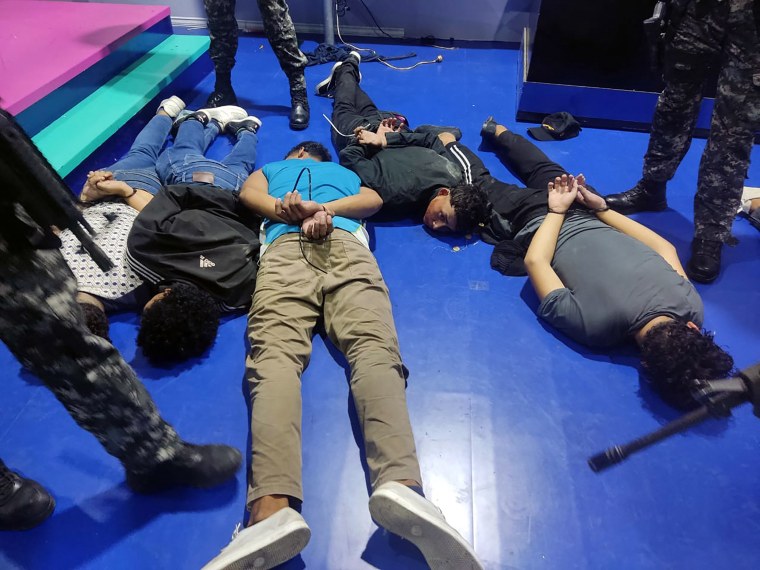
Hooded gunmen armed with powerful weapons and explosives stormed into public television channel Telecentro in the middle of a live broadcast and viewers watched as staff members were rounded up and made to lie down. A gunman proclaimed, “You cannot play with the mafia,” The Associated Press reported.
Though viewers heard gunshots and screams, and some staffers were beaten, no one was killed at the station, and eventually the government announced the arrests of several people.
But the television station’s head of news expressed the horror that Ecuadorians feel about the rising violence, telling the AP that she thought of her children as the attackers aimed a gun at her head. “Everything has collapsed,” Alina Manrique said. “All I know is that it’s time to leave this country and go very far away.”
What else has happened around the country?
The violence has turned deadly, with at least two police officers killed, a number of police officers abducted, guards taken hostage in several prisons and explosions around the country.
“There was a preamble of violence in the last few days, with buses being burned, with the situation of illegal groups extorting people — this could be seen coming,” José Delgado, a Telecentro host, told Noticias Telemundo anchor Julio Vaqueiro in a video interview from Guayaquil.
At the same time, the chaotic situation on Tuesday was exacerbated by a number of false videos and reports on social feeds, Noticias Telemundo reported, including some of a shootout near the gubernatorial palace and intense fighting at a metro station in Guayaquil — even though the port city doesn’t even have a metro or underground train system. There were also images posted on social channels of an armed man and cowering people at a metro station in Quito — which turned out to be video of an emergency drill done last fall.
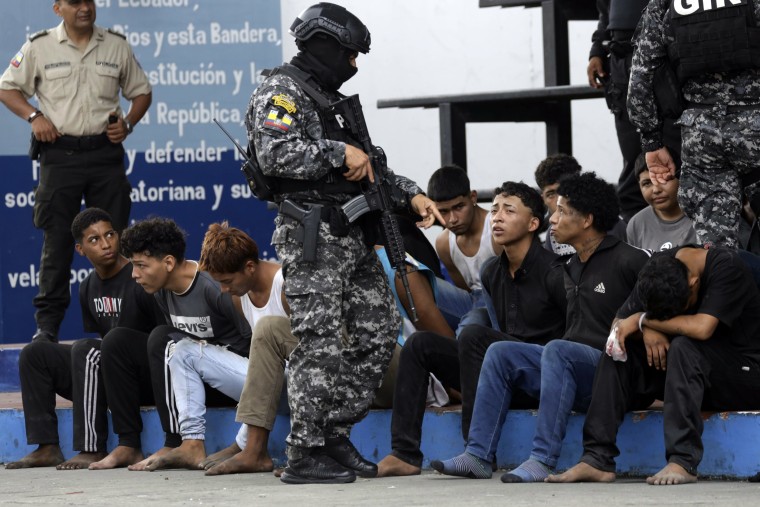
Who’s behind the violence?
Though no specific group was tied to Tuesday’s events, the country has been reeling from the growing power of drug trafficking gangs. In recent years,as Gedan pointed out, Ecuador has seen a steep rise in violence as Mexican and Colombian cartels have increased their presence in cities like Guayaquil, where drugs can be shipped from neighboring countries like Colombia.
In August, presidential candidate Fernando Villavicencio was assassinated after he said he received threats from Adolfo “Fito” Macías, the imprisoned leader of the Los Choneros, considered the country’s most powerful gang with ties to the Sinaloa cartel.
Ecuadorian President Daniel Noboa, who took office in November, had vowed to crack down on gangs and take control of the prisons. Over the weekend, Macías went missing from his prison cell and Fabricio Colón Pico, of the Los Lobos gang, also escaped from prison. In the last few days, the violence escalated.
What’s been the government’s response?
On Tuesday, Noboa stated that the country had entered into an “internal armed conflict.” He designated drug trafficking gangs as terrorist groups, posting their names on X and authorizing military operations to “neutralize” the groups in accordance with humanitarian international law.
That came a day after he declared a national state of emergency, granting the government and the armed forces more powers.
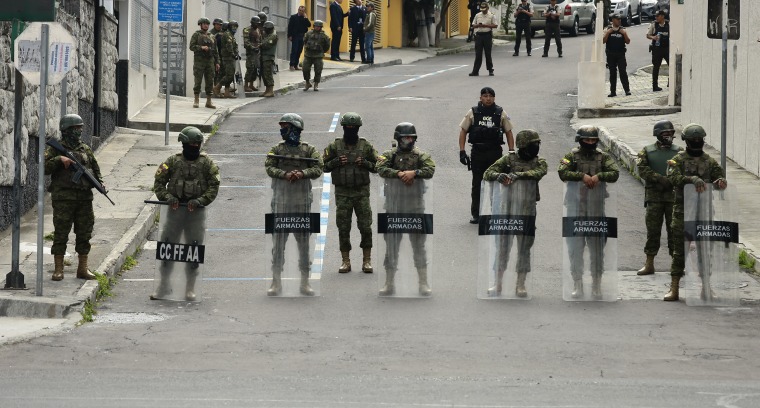
On Wednesday, schools and businesses were closed and the government ordered security forces to guard hospitals and transit areas. The government announced it had arrested over 300 people for acts of terrorism.
Gedan warned that the government crackdown could have an impact on human and civil rights. In El Salvador, the crackdown on gangs has led to hard-line tactics that have included arbitrary mass arrests, as well as the suspension of the rule of law and constitutional rights.
But Salvadorans have in large part supported Bukele’s measures, giving him high approval ratings.
“You could see Ecuador going down that path. This young new president has said he wouldn’t do that, but he’s also said he’s going to put a military (operation) against organized crime,” Gedan said. “He’s declared organized crime groups terrorist groups and wants to build new prisons, and some of these things may be good as part of the solution, but if he adopts these heavy-handed strategies, you could see the human rights conditions deteriorate as well.”
What’s at stake for the U.S.?
Migration from Ecuador, which already has been on the upswing, could increase even more, Gedan said.
In the 2023 fiscal year, Customs and Border Protection encountered 117,487 people from Ecuador at U.S borders and ports, compared to 24,936 encounters the previous fiscal year, according to Department of Homeland Security data.
Last year, the Biden administration offered a humanitarian parole program on a “case-by-case” basis for qualifying Ecuadorians with relatives in the U.S.
“Ecuadorians are really contributing now to the migration crisis in the U.S. and will contribute much more if things continue to spiral out of control,” Gedan said.
Ecuador has an election next year and if things continue on the path of upheaval they are on, the U.S. can expect the election of a government hostile to Washington in a year’s time.
In addition, there are humanitarian concerns. “These are our neighbors,” Gedan said.

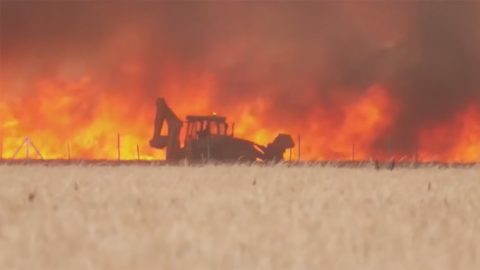
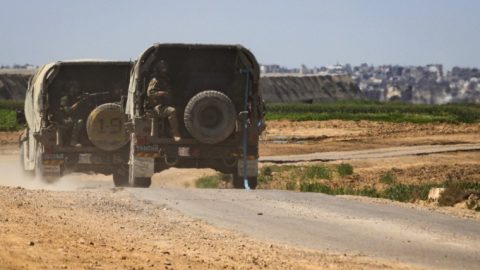
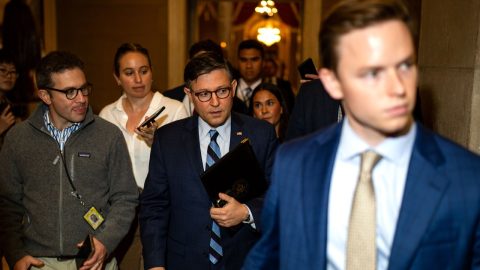
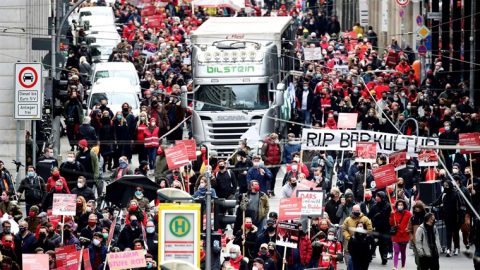
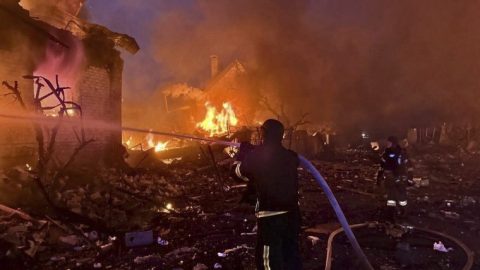
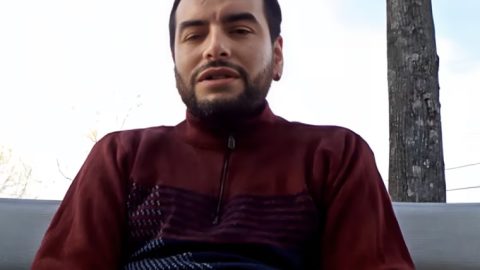
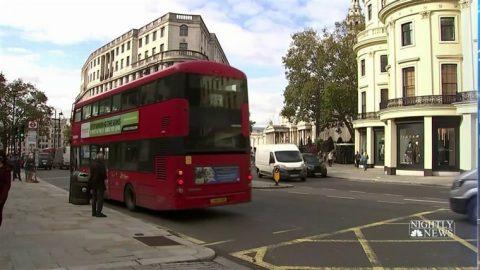

Recent Comments